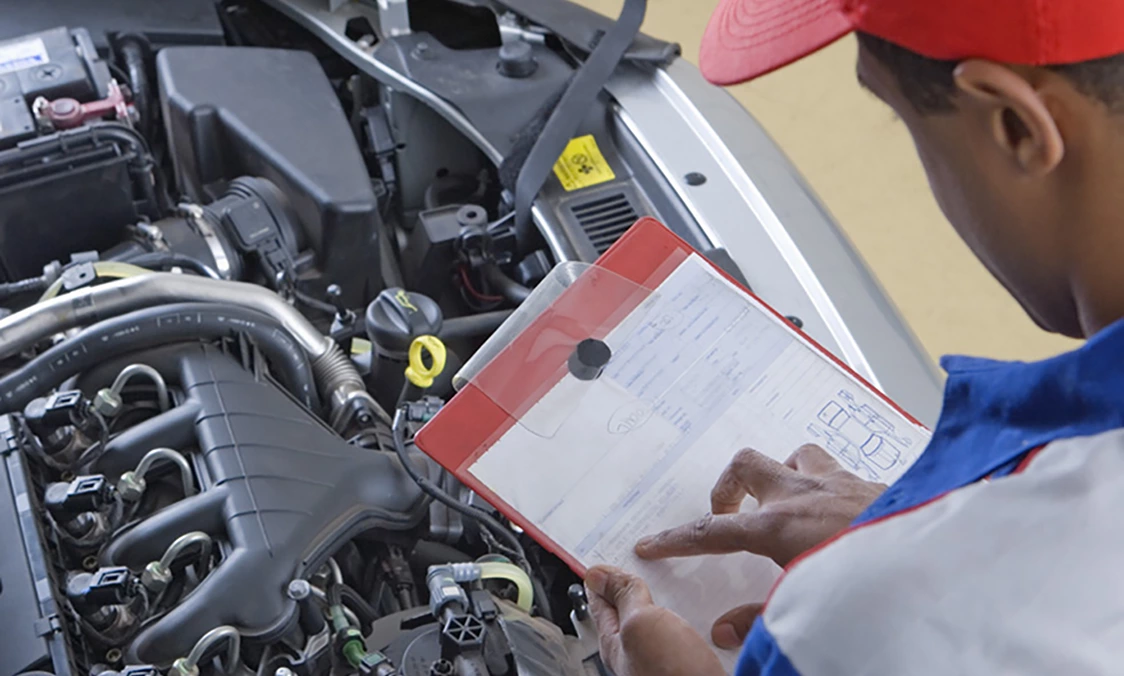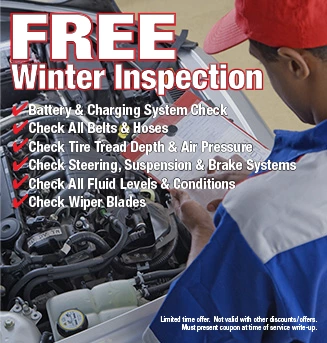Saving Lives in Troy with Tire Pressure
June 16, 2020
All new passenger vehicles on our Troy, Michigan, roads now have tire pressure monitoring systems – TPMS for short. They are designed to alert you if your tires are underinflated. Since they are fairly new, a lot of people have questions about them.
First off, the most important thing is that you still need to check your tire pressure every week – or at least every time you gas up. The TPMS system alert comes in when your tire is 20 percent below the factory recommendation. So if the recommended pressure is 34 pounds per square inch, the TPMS warning won't come on until the pressure is at 28 pounds. That's significantly underinflated, enough to raise safety concerns.
The worst is tire failure. A severely underinflated tire can overheat and fail. Also, handling degrades to the point that you may not be able to steer out of trouble. Also underinflated tires wear out faster and they waste fuel. So it's costly to not stay on top of proper inflation.
What's the practical value of the TPMS system? Well, it's twofold. First, it can alert you when your tire is losing pressure due to a puncture or a bent rim. That's an important warning that you might not have gotten until next time you gassed up.
The second is that we all occasionally forget to check our tire pressure. So it's a fail-safe system to let you know there's a problem brewing.
Other things can cause your TPMS system to go off. The system also monitors itself. The sensors that are mounted in the wheels have little batteries that send a signal to the monitor. The batteries go dead over time and the TPMS system will let you know. And the sensors could break. Also road salt from our Michigan roads can ruin them.
There's also a hassle factor that your Troy, Michigan, tire center has to contend with. For example, when you have your tires rotated in Troy, the TPMS system has to be re-calibrated so that it knows which tire is on which corner of the car. Same is true for when you have new tires or winter tires installed. Flat repairs, as well.
That takes extra time. And it requires the right equipment and training. Special – and expensive – tire change machines need to be used with some sensors. It's all complicated by the fact that there are a number of different TPMS systems in use so the tire professionals at Auto Lab Troy need equipment and training for each kind. Tire centers have had to raise the price of some of these basic services to offset their increased costs.
Also if you add custom wheels on your vehicle, you need to put in new TPMS sensors if your originals won't work on the new rims. If you don't your TPMS light will be on constantly and you won't have the benefit of the warning system.
All in all, the mandated TPMS systems will save lives, so they're worth the added hassle and expense.
Auto Lab Troy
2790 West Maple Rd.
Troy, Michigan 48084
(248) 643-7690
Need Service?
More articles from Auto Lab Troy

Don?t Be Hosed (Radiator Hose Replacement)
January 18, 2026
If you are like most drivers, you dont worry too much about what shape your radiator hoses are in. But they are a vital part of your coolant system, helping carry engine coolant from the hot engine to where it is cooled off in the radiator. When the cooling system has a problem, you will likel... More

Smooth Operator (Shock Absorbers)
January 11, 2026
When you are comfortably headed down the road, you may not realize how many of the imperfections in the driving surface are being smoothed out, so you hardly feel most of them. You can thank your shock absorbers for a lot of that comfort, and its important to make sure you keep your shocks in go... More

What?s That Yellow Squiggly Line Anyway? (What Warning Lights Mean)
January 4, 2026
You may have noticed when you start your vehicle, youll see several symbols light up on the dash. Theyre different colors and shapes, and sometimes its hard to figure out what each of those symbols mean. They are warning lights and symbolize something in your vehicle is sending you a message. I... More










